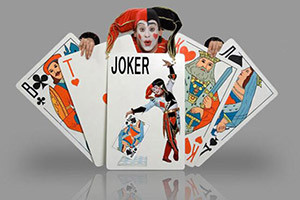Карта на английском языке как пишется


Откройте возможности нейронного машинного перевода PROMT
PROMT.One (www.translate.ru) – бесплатный онлайн-переводчик на основе нейронных сетей (NMT) для азербайджанского, английского, арабского, греческого, иврита, испанского, итальянского, казахского, китайского, корейского, немецкого, португальского, русского, татарского, турецкого, туркменского, узбекского, украинского, финского, французского, эстонского и японского языков.
Смотрите перевод слов и устойчивых выражений, транскрипцию и произношение в онлайн cловаре. Словари PROMT для английского, немецкого, французского, русского, испанского, итальянского и португальского языков включают миллионы слов и словосочетаний, самую современную разговорную лексику, которая постоянно отслеживается и пополняется нашими лингвистами.
Изучайте времена и формы глаголов в английском, немецком, испанском, французском и русском языках в разделе Спряжение и склонение. Учите употребление слов и выражений в разных Контекстах. Мы собрали для вас миллионы примеров перевода на разные языки, которые помогут вам в изучении иностранных языков и подготовке домашних заданий.
Лексика по теме
«Карты (игральные)» (Cards)
(англо-русский глоссарий с транскрипцией)
Англо-русский глоссарий по теме «Карты (игральные)» (Cards)
| Cards | [ kɑːdz ] | Карты (игральные) |
| card | [ kɑːd ] | карта |
| card games | [ kɑːd ɡeɪmz ] | карточные игры |
| game | [ ɡeɪm ] | кон / партия / раздача |
| to deal the cards | [ tə diːl ðə kɑːdz ] | сдавать карты |
| to shuffle the cards / the deck | [ tə ˈʃʌfl̩ ðə kɑːdz ] [ ðə dek ] | тасовать карты |
| to cut the cards | [ tə kʌt ðə kɑːdz ] | снимать колоду |
| pack / deck of cards | [ pæk ] [ dek ] [ əv kɑːdz ] | колода карт |
| suit | [ s(j)uːt ] | масть |
| hearts | [ hɑːts ] | черви |
| clubs | [ klʌbz ] | трефы |
| diamonds | [ ˈdaɪəməndz ] | бубны |
| spades | [ speɪdz ] | пики |
| trump | [ trʌmp ] | козырь |
| non-trump cards | [ nɒn trʌmp kɑːdz ] | некозырные карты |
| trump suit | [ trʌmp s(j)uːt ] | козырная масть |
| lower / higher card | [ ləʊə ] [ haɪə kɑːd ] | младшая / старшая карта |
| lowest trump | [ˈləʊɪst trʌmp ] | младший козырь |
| denomination / rank | [dɪˌnɒmɪˈneɪʃn̩ ] [ ræŋk ] | достоинство (карты) |
| ace | [ eɪs ] | туз |
| king | [ kɪŋ ] | король |
| queen | [ kwiːn ] | дама |
| jack | [ dʒæk ] | валет |
| joker | [ ˈdʒəʊkə ] | джокер |
| a trump 7 | [ ə trʌmp ˈsevn̩ ] | козырная семерка |
| ten of clubs | [ ten əv klʌbz ] | десятка треф |
| three twos | [ θriː tuːz ] | три двойки |
| ace of hearts | [ eɪs əv hɑːts ] | туз червей |
| face | [ feɪs ] | лицо (карты) |
| back of a card | [ ˈbæk əv ə kɑːd ] | рубашка (карты) |
| hand | [ hænd ] | карты ((имеющиеся) на руках) |
| to put down / to lay (a card) | [ tə ˈpʊt daʊn ] [ tə leɪ ] [ ə kɑːd ] | положить (карту) |
| attack | [ əˈtæk ] | заходить / заход |
| attacker | [ əˈtækə ] | заходящий игрок |
| discard | [ dɪˈskɑːd ] | сбрасывать карту |
| to beat / defend | [ tə biːt ] [ dɪˈfend ] | побить / покрыть карты |
| discard pile | [ dɪˈskɑːd paɪl ] | отбой (карты, вышедшие из игры) |
| successful defense | [ səkˈsesfəl dɪˈfens ] | отбой (игрок отбился – побил все карты) |
| defender | [ dɪˈfendə ] | отбивающийся игрок |
| pass | [ pɑːs ] | переводить (карты) |
| Your turn! | [ jɜː tɜːn ] | Твой ход! |
| to abandon the defense | [ tu əˈbændən ðə dɪˈfens ] | принять (забрать карты) |
| trick | [ trɪk ] | взятка |
I Doubt It
Number of players: 6-12
Cards: Standard deck of 52 cards
How to play: Choose a “dealer” to deal all cards, one at a time, to each player. Some players will have more cards than others, which is okay. Players can organize their hand of cards as they please, but do not show any other players. The player to the left of the dealer begins the game starting with aces. He places the card(s) face down in the centre of the table saying “two aces” or whatever the desired number of cards are. Players can lay up to four cards of the card they are required to discard. The game continues clockwise to the next player, who will discard twos. The following player discards threes, and so on. Players announce their cards as they lay them. Start again with aces after kings have been played. Keep in mind that players don’t have to play the cards they announce. They can be lying. Even if you do not have the required card to discard, you must put down and name a card.
After each turn, allow a moment to let anyone challenge the player by saying “I doubt it.” Remember to challenge a player only if you think he might not be discarding the cards he says he is. When a challenge is voiced, the challenger can look at the discarded cards. If they match what the person who played them said, the challenger picks up all cards in the discard pile and adds them to his personal pile. If the cards are not what the person said they were, the player who discarded them must pick up the entire discard pile. The player to lay down his entire hand of cards first will win the game.
Durak
Durak is a Russian card game that is popular in post-Soviet states. The object of the game is to get rid of all one’s cards. At the end of the game, the last player with cards in their hand is referred to as the fool.
The game is typically played with a deck of 36 cards (numerical cards 2 through 5 are removed from a standard 52 card deck prior to play) and is played with two to five people. The deck is shuffled, and each player receives six cards. The top card on the remaining deck is made visible and placed at the bottom of the deck at a 90 degree angle (so that its denomination and suit are visible). This determines the trump suit, however the revealed card is actually a part of the deck, the last card to be drawn. The player with the lowest trump is the first attacker. A deck of 36 cards limits the number of players to six, although some variants allow more than one deck to be used. A six-player game with one deck is not optimal, however, because it gives a considerable advantage to the player who attacks first, and a considerable disadvantage to the player who defends first. If multiple games have been played, often the loser of the previous game shuffles and deals.
The starting player is the first attacker. The player to the attacker’s left is always the defender. After each turn play proceeds clockwise. If the attack succeeds (see below), the defender loses his or her turn and the attack passes to the player on the defender’s left. If the attack fails, the defender becomes the next attacker.
The attacker opens the turn by playing one card face up on the table as an attacking card. The player to the attacker’s left is the defender.
In the basic podkidnoy (подкидной, «throw-in») variant, and in most other variants of durak, the defender has to immediately attempt defense in response to the initial attack. In the perevodnoy (переводной, «passing») variant, the defender may choose to either attempt defense or to pass the attack on clockwise around the table. In this case, the defender may only pass on the attack if he has in his or her hand a card of the same rank as the attacking card or cards. To pass on the attack, he adds this card to the attacking cards. The defender now becomes the new attacker, and the player to his or her left becomes the new defender and must beat all cards. If the person on the player’s left (the new defender) has fewer cards in his/her hand than will be on a table after «passing», «passing» is not allowed. The new defender must then decide upon a response for this new attack. In games involving four or fewer players, it is perfectly possible for the attack to pass all the way around the table, so that the original attacker ends up defending against his or her own attack (and against three other attacks of the same rank).
Aces are high. Trumps always beat non-trump cards regardless of rank (e.g., a trump 6 beats a non-trump ace).
The defender attempts to beat the attacking cards by playing defending cards from their hand. One card is played in defense of each attacking card. Non-trump attacking cards may be beaten by either a) a higher card of the same suit or b) a trump. Trump attacking cards may only be beaten by higher trumps. The defending cards are placed on top of the attacking cards so that players can keep track of which card is defending against which.
At any point during a defense, the attacker or any third party can pitch in extra attacking cards, provided that for each new attacking card, there is already a card of the same rank on the table (either defending or attacking), and the total number of attacking cards does not exceed six, five if there have been no successful defenses, or the number of cards in the defender’s hand, whichever is less. The defender must also defend against these new cards.
If the defender is unwilling or unable to beat all attacking cards, he must pick up all the cards on the table—including all the cards the attackers pitched in—and incorporate them into his or her hand. At this point, the defense is abandoned. The defender may choose to abandon the defense at any point during the turn. This immediately ends the turn. The failed defender loses her or his turn to attack; hence the player to the defender’s left attacks next.
If, however, the defender has beaten all attacking cards, and no other players are willing or able to add more, the defender has triumphed. The turn ends, all cards on the table are discarded from play to a discard pile, and play passes to the left: the successful defender opens the next turn as the new attacker.
At the end of each turn, whether or not the defense was successful, the following action is performed: starting from the main attacker, followed by anyone else who contributed cards, and culminating with the defender, each player with fewer than six cards in their hand must draw cards from the deck until they have six cards in their hand. When the deck runs out of cards, play simply carries on without any more cards being drawn. At this point, when someone runs out of cards, they are done with the game, and everyone else continues. Each player draws as many cards as they need (e.g. if there are six cards left in the deck and the attacker has just spent their entire hand, they draw the entire deck and no one else draws any cards). The order in which this is done is strategically important since the last card in the deck is by definition a trump.
No players may examine the discard pile at any point.
Winning and losing
There are different types of the game. In one type there are no winners, and only one loser; in another the winner is the first person who leaves the game without cards in his hand. The last person with cards left in their hand is the loser (the fool or «durak»). That person is the dealer for the next game, and the person to the left of the fool is the first attacker of the next game.
With four (2 vs. 2) or six players (2 vs. 2 vs. 2 or 3 vs. 3), it is possible to play in teams. The members of each team sit opposite one another (with two players on each team), or alternating (with three). The members of each team do not put down cards for their teammate to defend, but focus on piling up on the other team(s) instead.
О картах на английском языке
Игра в карты «на щелбаны» была особым видом развлечения в моем детстве. Среди моих друзей, наверное, только ленивый не умел играть в дурака. Много лет прошло с тех пор, когда я последний раз тасовала карты и раздавала их игрокам. Но недавно в нашей компании оказался парень-американец, который предложил скрасить вечер игрой в карты. Мы были двумя руками за то, чтобы «тряхнуть стариной», так сказать. Одна проблема: в процессе игры ни я, ни мои друзья не смогли логично построить 2-3 предложения о картах на английском. Это при том, что уровень английского у нас высокий. Вот тут и стало понятно, что в следующий раз нам придется основательно подготовиться к такому времяпровождению: вспомнить названия мастей на английском и типы карт. А я в который раз убедилась, что никогда не знаешь, что может пригодиться.
Название карт на английском языке
Стандартная колода карт (a deck of cards) состоит из 54 карт, включая двух джокеров (2 jokers). У карт есть 4 масти (4 suits):
| Слово | Перевод | Картинка |
|---|---|---|
| Diamonds | Бубны |  |
| Hearts | Червы/черви |  |
| Spades | Пики | 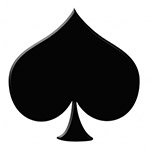 |
| Clubs | Трефы | 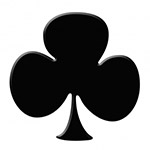 |
А вот так называются старшие карты (cards with a rank) в колоде:
| Слово | Перевод | Картинка |
|---|---|---|
| Ace | Туз |  |
| King | Король |  |
| Queen | Дама |  |
| Jack | Валет |  |
| Joker | Джокер |  |
Слова, связанные с карточными играми
В большинстве карточных игр есть определенный набор слов: «сдавать карты», «козыри», «тянуть карту» и т. д. Давайте обратимся к списку полезных слов и фраз по теме:
Hearts are trumps. – Черви – козыри.
I will trump your card. – Я побью козырем твою карту.
Even though he was acting cool, I knew he was bluffing. – Хотя он вел себя невозмутимо, я знал, что он блефовал.
I won’t play with him. He comes across as a cheater. – Я не буду играть с ним. Он известен как мошенник.
Самая популярная карточная игра мира – покер
Давайте обратимся к, пожалуй, самой популярной карточной игре – покеру (poker). Просматривая фильмы на английском языке, я часто задавалась вопросами, что значат все эти фразы: nice hand, royal flush и т. д. И теперь нашла ответы на многие вопросы. Итак, hand (дословный перевод – рука) – карты игрока, которые он имеет на руках. Комбинации в покере обычно состоят из 5 карт. Когда говорят nice hand, то имеют в виду «удачную комбинацию», то есть человеку повезло с теми картами, которые ему выпали. Приведу несколько примеров комбинаций:
| Слово | Перевод | Картинка |
|---|---|---|
| Royal flush | Флеш-рояль – пять карт одной масти с десятки и до туза. «Непобедимая» комбинация карт в покере. | 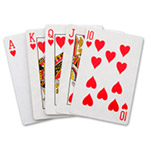 |
| Straight flush | Стрит-флеш – пять карт одной масти в порядке возрастания. | 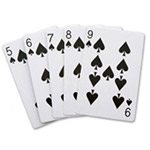 |
| Four of a kind | Каре – 4 карты из 5 должны быть одного достоинства (4 туза или 4 восьмерки) | 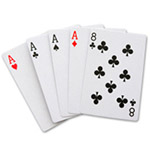 |
| Full house | Фулл хаус – три карты одного достоинства и 2 карты другого. | 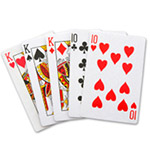 |
Идиомы о картах на английском языке
Первые карточные игры появились еще в XII веке в Китае и Корее. С тех пор они распространились по всей планете и стали источником для многих идиом в английском и других языках. Давайте посмотрим на самые известные из них.
My real estate agent was not above board when he sold a house to me twice more than its actual price. – Мой агент по недвижимости нечестно поступил, когда продал мне дом вдвое дороже, чем его настоящая цена.
В общем, динамика понятна: если чего-то не хватает, то так говорят о глупом человеке.
Her husband sometimes acts strange. People say he is a few cards short of a full deck. – Ее муж иногда странно себя ведет. Люди говорят, у него не все дома.
The McDonald’s staff were about to quit but the regional manager had an ace up his sleeve and offered them more money than they expected. – Сотрудники Макдональдса были готовы уволиться, но региональный менеджер достал туз из рукава и предложил им больше денег, чем они ожидали.
There is no way you can win the case. You have the cards stacked against you. – Тебе никак не выиграть дело. Все против тебя.
I knew that all his business was a failure and it collapsed like a house of cards. – Я знала, что его бизнес был провальным. Он рухнул, как карточный домик.
Valerie felt that her student had talent in spades but he barely had any experience. – Валери ощущала, что студент был очень талантливым, но у него почти не было опыта.
I didn’t know what to think of him. He might have been that joker in the pack who could change the situation drastically. – Я не знала, что думать о нем. Он мог быть той темной лошадкой, которая могла бы изменить всю ситуацию.
Stop pussyfooting around! Just lay your cards on the table and tell me the truth! – Хватит осторожничать! Просто открой свои карты и скажи правду!
When it comes to his income, he always plays cards to his chest. – Когда дело касается его доходов, он всегда секретничает.
She had a poker face when her husband accused her of infidelity. – Ее лицо ничего не выражало, когда муж обвинил ее в неверности.
His strong suit was his ability to hold his tongue when it was necessary. – Его сильной стороной была способность держать язык за зубами, когда это было необходимо.
Надеюсь, после этой статьи вам не придется краснеть за свой английский (в отличие от меня), если вы окажитесь за одним игральным столом с англичанами или американцами. Выпишите полезные слова себе в словарик и поработайте с ними: напишите сочинения, используя новые слова, поищите тексты данной тематики. Пусть эти знания останутся с вами пока в пассивном словарном запасе, но при необходимости вы сможете их использовать.
А еще мы публикуем много интересных статей в блоге нашей школы. Вот некоторые из них:
Если вы нашли ошибку, пожалуйста, выделите фрагмент текста и нажмите Ctrl+Enter.

